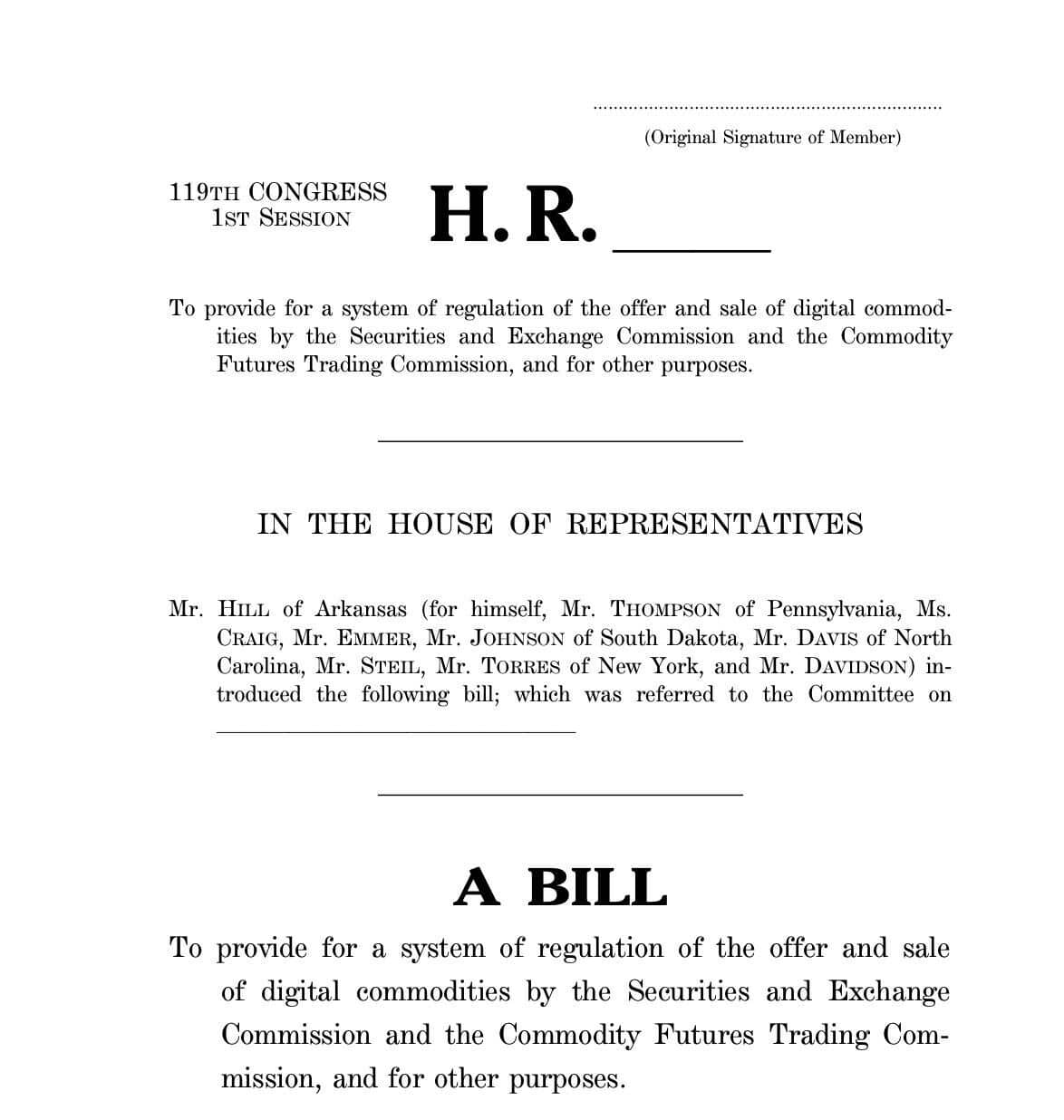Key Takeaways:
- Crucial Markup Session: The U.S. House Financial Services Committee will hold a markup session to review, amend, and vote on the Digital Asset Market Clarity Act (CLARITY Act) on June 10.
- Objective of Clarity: The CLARITY Act aims to establish a clear regulatory framework for digital assets, delineating oversight roles between the SEC and CFTC, and clarifying which assets are securities and which are commodities.
- Industry Hopes: The crypto community hopes this bill will provide needed certainty, foster innovation, and protect consumers and markets from fraud.
- Challenges and Advocacy: Crypto advocacy groups are actively lobbying to ensure the bill protects DeFi developers and does not impose unsuitable regulations.
An Urgent Need for a Clear Crypto Regulatory Framework
The global cryptocurrency market has been developing at a breakneck pace, attracting millions of investors and driving countless technological innovations. However, in the United States, one of the world’s largest financial centers, the absence of a clear and consistent legal framework for digital assets has created an uncertain environment, posing challenges for both businesses and investors. Regulatory bodies like the Securities and Exchange Commission (SEC) and the Commodity Futures Trading Commission (CFTC) often have different approaches and interpretations, leading to legal “gray areas” and costly litigation. It is against this backdrop that the CLARITY Act (Digital Asset Market Clarity Act) has emerged, with the hope of bringing “light” to this nascent industry.

The CLARITY Act: Core Content and Targeted Goals
The CLARITY Act is anticipated to address several core issues currently debated in the U.S. crypto legal landscape. One of the central goals of the bill is to clearly define what constitutes a “digital asset.” More importantly, the bill seeks to clearly delineate supervisory authority between the SEC and CFTC. This means there will be specific criteria to determine whether a particular digital asset (e.g., Bitcoin, Ethereum, stablecoins, or other altcoins) will be considered a security (under SEC jurisdiction) or a commodity (under CFTC jurisdiction).
This clarification will not only help crypto projects and companies understand their legal obligations but also better protect investors. With clear regulations, investors will be aware of their rights and the potential risks when participating in the market. Simultaneously, a transparent legal framework is expected to encourage responsible innovation, allowing the crypto industry to develop more sustainably in the U.S., rather than operating with concerns about sudden legal changes or retroactive enforcement actions.
The June 10 Markup Session: A Potential Turning Point
The U.S. House Financial Services Committee has scheduled a crucial markup session for the CLARITY Act on June 10. This is a significant step in the legislative process. During this session, lawmakers will discuss the bill’s content in detail, propose amendments, and ultimately vote on the revised version. If passed by the committee, the bill will have the opportunity to be brought before the full House for consideration and a vote.
This markup session is being closely watched by the crypto industry. It is not only an opportunity for lawmakers to express their views and shape the future of crypto regulation but also a chance for the public to better understand the challenges and opportunities presented by digital assets. The outcome of the session will significantly impact the direction of the CLARITY Act and, more broadly, the entire crypto industry in the United States.
Expectations and Lobbying Efforts
The crypto community and stakeholders have high hopes for the CLARITY Act. They believe a clear legal framework will unlock innovation potential, attract further investment, and solidify the U.S.’s position as a fintech hub. Clearly distinguishing between digital securities and commodities will make regulatory compliance easier for businesses, reduce legal risks, and promote a level playing field.
However, not all aspects of the bill have universal agreement. Lobbying groups for the crypto industry are actively working with lawmakers to ensure the bill’s language is appropriate and does not stifle growth. One of the main concerns is the protection of developers in the Decentralized Finance (DeFi) space, especially those who do not directly hold user funds. They argue that these entities should not be regulated like traditional financial institutions. Balancing the promotion of innovation with consumer protection and market stability will be a key factor in the upcoming discussions.
The future of the CLARITY Act may also be influenced by the progress of other related bills, such as the GENIUS Act in the Senate, which focuses on stablecoins. Coordination and consensus between different branches of government will be crucial to creating a comprehensive and effective legal framework for the digital age.
More News: Senate Shocker: 15+ Democrats Flip as GENIUS Act Clears Key Hurdle in 66-32 Vote








